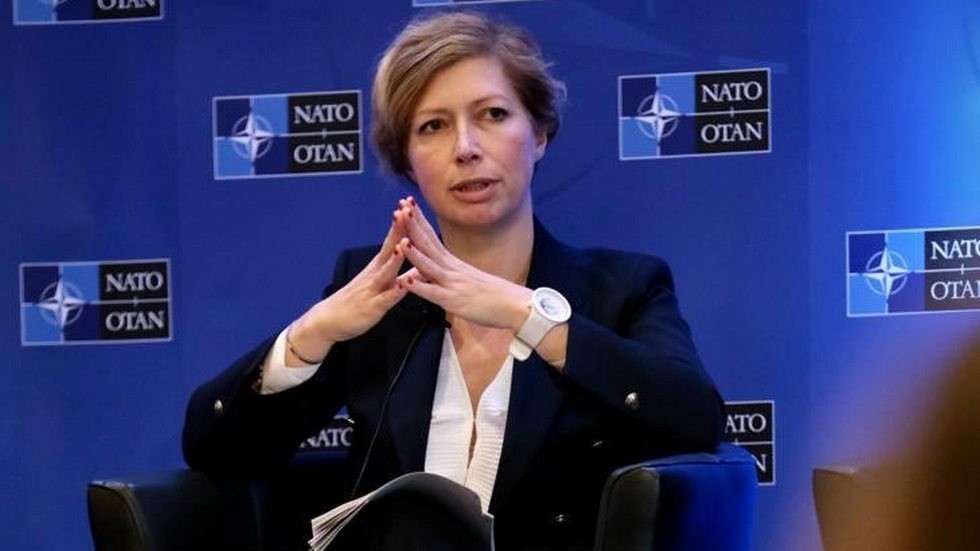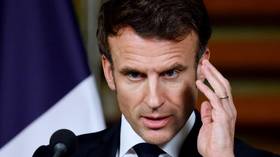
Kiev’s membership in the US-led military bloc is not on the table for now, the French Foreign Ministry spokeswoman said

French Foreign Ministry spokeswoman Anne-Claire Legendre. © Twitter
Ukraine’s accession to NATO is not being discussed right now, given the ongoing hostilities between Moscow and Kiev, the French Foreign Ministry spokeswoman said on Saturday.
Speaking to the Russian RTVI Channel, Anne-Claire Legendre was asked about Ukraine’s bids to join the European Union and the US-led military alliance. She described the EU’s decision to grant Ukraine candidate status in June 2022 as “very important,” sending a signal of “serious political support” for Kiev’s course and reflecting Ukrainians’ desire to embrace European values.
However, she refrained naming exact dates for Kiev to become part of the EU, saying Brussels is formulating a roadmap which could take “more or less time.” The spokeswoman noted that EU members are seeking to “move towards a very specific cooperation with our Ukrainian friends.”
The spokeswoman’s comments came after the European Commission determined on Thursday that Ukraine was only at an “early stage” of readiness to meet EU standards in many key areas. The bloc’s top executive body notably highlighted Kiev’s shortcomings in labor and gender equality legislation.

Legendre also signaled that Ukraine should not expect to join NATO in the near future, cautioning that accession is “is not on the agenda now. There is a war going on now.” However, she stressed that the alliance still adheres to its open-door policy, citing the 1975 Helsinki Accords, which stipulate that every state is free to choose its own allies.
Ukraine’s potential accession to NATO has long been a key security concern for Russia, and was cited as one of the factors prompting Moscow to launch its military operation in February 2022.
In December 2021, before large-scale hostilities broke out, Moscow submitted draft documents on security guarantees to NATO and the US, demanding that Ukraine be barred from entering the alliance, and insisting that the bloc itself should retreat to the borders of 1997. The initiative, however, was rebuffed.




